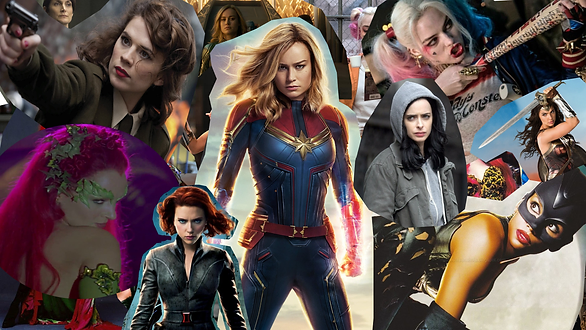
The film industry has always been a male-dominated field, but the influence and contributions of women cannot be ignored. From the first female directors to today’s screen stars, women have played a crucial role in shaping cinema.
Brief history of women’s role in world cinema
The early days of cinema saw very few women involved in the industry. During the silent film era, it was uncommon for women to work behind the scenes as directors, producers or writers. However, there were a few trailblazers who paved the way for future generations.
One such pioneer was Alice Guy-Blaché, who is considered to be the first female director in the world. In 1896, she directed “La Fée aux Choux” (The Cabbage Fairy), which was one of the first narrative films ever made. She also established her own film studio, Solax Company, in 1910.
Another notable name from the early days of cinema is Lois Weber, who was not only a successful director but also a screenwriter, producer and actress. She tackled controversial social issues in her films, breaking barriers for women in the industry.
Women’s role in world cinema today
With the advancement of technology, more opportunities have opened up for women in the film industry. Today, we see women taking on various roles behind the camera such as directors, producers, screenwriters and cinematographers.
In front of the camera, women are proving to be just as successful as their male counterparts. In recent years, there has been a rise in strong and diverse female characters, challenging traditional gender roles in films. Actresses like Viola Davis, Emma Stone, and Meryl Streep have become household names and are consistently delivering extraordinary performances.
Women’s impact on the development of cinema
Women’s influence can be seen not only in front of the camera but also behind it. Throughout history, they have brought new perspectives and ideas, pushing the boundaries of traditional storytelling in cinema.
One major contribution of women to world cinema is the introduction of the Bechdel Test. This test measures female representation in films by evaluating if a movie has at least two named female characters who have a conversation about something other than a man. It may seem simple, but it has shed light on the lack of female representation and sparked important discussions about gender inequality in the film industry.
In addition, many female directors and producers have focused on telling stories from a female perspective, bringing attention to issues that are often overlooked or ignored. This has led to more diversity and inclusivity in cinema, making it a better reflection of society.
Challenges faced by women in world cinema
Despite their significant contributions, women in the film industry still face many challenges. The gender pay gap and lack of representation in leadership positions are ongoing issues. Women also often face discrimination and harassment on set.
However, with movements like #MeToo and Time’s Up gaining momentum, more attention is being brought to these issues and measures are being taken to address them. Women in the industry are also speaking out and supporting each other, creating a stronger and more inclusive community.
Progress made by women in world cinema
While there is still a long way to go, progress is undeniably being made for women in world cinema. In recent years, we have witnessed a remarkable surge in female-led films, amplifying the voices and stories of women on the big screen. Moreover, there has been a commendable rise in the representation of women in various roles behind the scenes, breaking down barriers and paving the way for future generations.
One notable milestone in this journey occurred in 2019 when Bong Joon-ho’s internationally acclaimed masterpiece, “Parasite,” shattered expectations and became the first non-English language film to ever win the prestigious Best Picture award at the Oscars. This historic win not only elevated the film’s brilliance but also marked a significant triumph for diversity and inclusivity in the film industry. It is worth highlighting that producer Kwak Sin-ae made history as the first Korean woman to receive an Oscar, further exemplifying the remarkable achievements of both women and foreign filmmakers.
These milestones serve as a testament to the persistent efforts to dismantle gender barriers and the increasing recognition of the invaluable contributions made by women in shaping the world of cinema. As we celebrate these accomplishments, it is crucial to continue championing and supporting the incredible talent and creativity of women in the film industry, ensuring that their voices are heard and their stories are shared with audiences worldwide.
Future prospects for women in world cinema
The future looks bright for women in world cinema. With the rise of streaming platforms, there are more opportunities for diverse and inclusive storytelling. The success of female-led projects such as “Wonder Woman,” “Black Widow” and “Captain Marvel” has shown that audiences crave strong and dynamic female characters.
Moreover, as more discussions about gender equality and representation take place, it is likely that we will see a higher number of women in leadership positions, directing major Hollywood productions. This could lead to a shift in the way films are made and stories are told, bringing even more diversity and inclusivity to the world of cinema.
In conclusion, the influence and contributions of women in world cinema cannot be overstated. From breaking barriers to telling untold stories, women have played a crucial role in shaping the film industry. While there are still challenges to overcome, the progress made towards gender equality and inclusivity is undeniable. As we continue to celebrate and support the incredible talent of women in cinema, we can look forward to a future where their voices and stories are heard loud and clear on screens across the globe.





